[This article is a follow on to my article in the January 8 edition of Asia Times. I have used some of the information in that article in this one.]
According to Bloomberg News, China had strategic missiles filled with water instead of fuel touching off a corruption scandal that led to Chinese President Xi's military purge of China's Rocket Forces. Bloomberg reported that the information came from US intelligence sources.
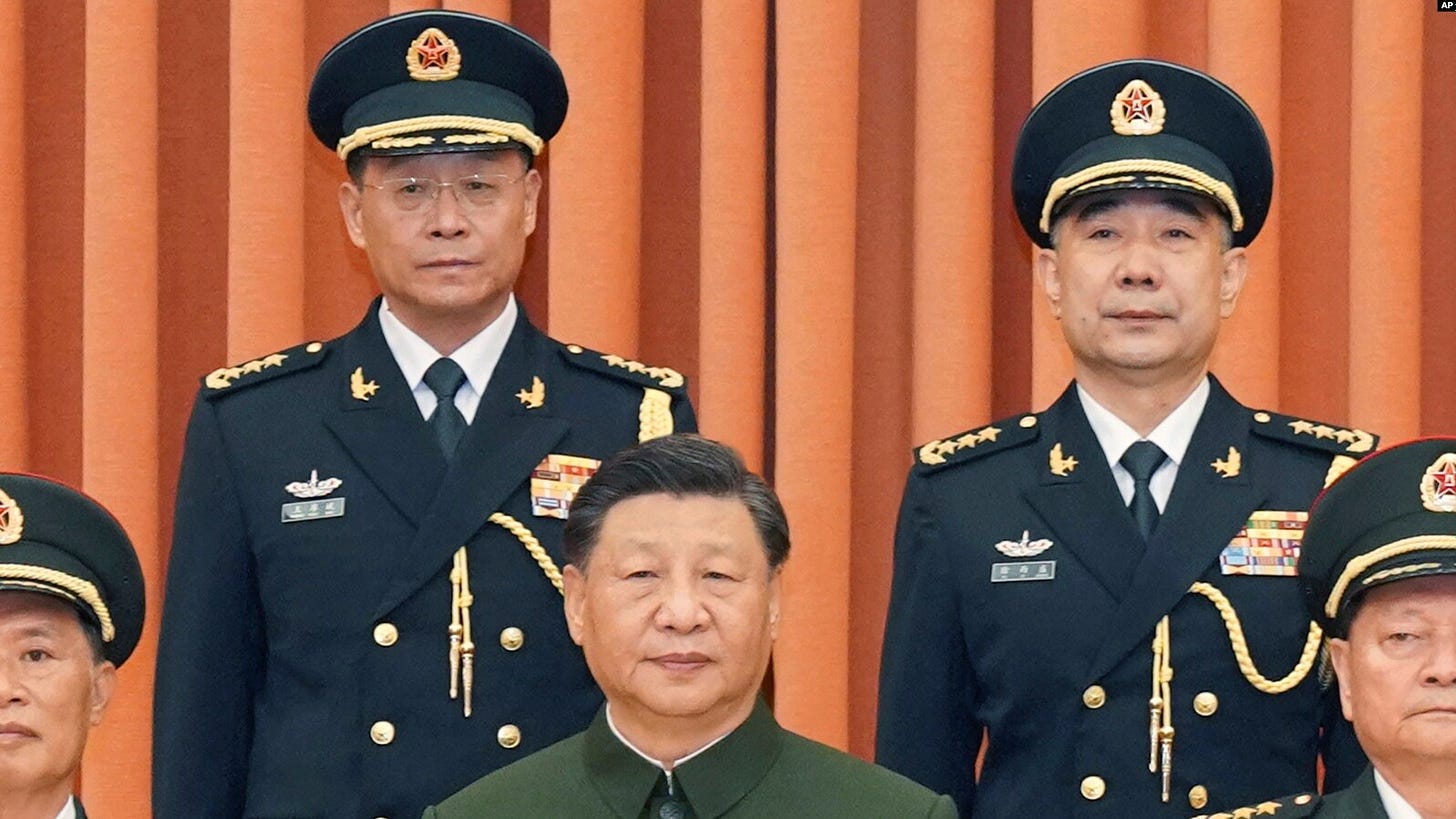
Bloomberg does not say where US Intelligence got the information although Bloomberg says that the information cannot be validated. Bloomberg does say that it was the information about such “corruption” that led China’s President, Xi Jinping, to purge the Rocket Force.
It is unlikely US intelligence got its information from US overhead satellite pictures for two reasons: you can't see inside of missiles with cameras, and even if you could, you could not tell the difference between water and liquid fuel; most of China's silos are covered by movable lids, hiding the contents when it comes to already operational missiles, and the newest silos under construction are covered by tented domes.
The same intelligence sources also told Bloomberg that the new Xinjiang missile field silos were fitted with lids that were not installed properly and would not work.
Taken together both claims, water in missiles and ill-fitting silo lids, appears to come from what the intelligence community calls HUMINT, that is, human-sourced intelligence. This means either the US had agents in China who reported this information (or got it from other friendly intelligence sources) or, alternatively the Chinese told the military about these problems.
The US intelligence network in China was all but decimated in 2017. The US is still trying to fix that problem. Meanwhile the British have headaches of their own when one of their alleged spies in China was arrested on or around January 8th. In any case, China would be expected to be ultra-careful when it came to its strategic nuclear missile system, suggesting that US or other friendly agents would not have learned this information.
The HUMINT source may well have fed information to US military officials growing out of the new high level military contact between China and the United States starting in late December. If so, this raises the question of why Chinese military officials would tell this information to the United States.
One can only speculate about why China would provide such information, but a possible explanation is that China wanted to tell the US that the command of their rocket forces was now reliable, and that the purge came about because of corruption, and not because of any attempt by Xi’s enemies to gain control of China’s nuclear missiles. In that context the Chinese officials could have told their counterparts that the problem was “corruption” and it has been fixed, and the military guys responsible have been removed.
A key reason for the resumption of military ties between China and the US is "transparency" meaning that both sides inform each other on various developments in order to allay suspicion and lower the threshold of risk.
So concerned are some US military leaders about transparency that the former Chairman of the Joint Chiefs of Staff Mark Milley, secretly contacted his Chinese counterpart near the close of the Trump presidency to tell his Chinese counterpart, General Li Zuocheng, that the US would not attack China and that Milley, not Trump, was in charge of all US strategic forces.

The related data point to keep in mind is that Chinese President Xi Jinping for the past couple of years has been carrying out a tough anti-corruption campaign. He has sacked industrial, civilian and military leaders, reaching as high as his own Defense Minister.
There is little doubt that China has significant problems with corrupt industrialists and officials. In fact it can be asserted that what greases the wheels of the Chinese Communist party are kickbacks in cash and in-kind payments. China's military, that handles lucrative defense contracts and procurements also has been implicated.
But if China said the cause of contaminating strategic rockets was “corruption” the allegation does not make sense.
Putting water into the tanks of missiles is sabotage, not corruption.
The fact that Bloomberg was fed this story by US intelligence persons also seems bizarre. By leaking the story it would appear US intelligence thought they learned a lot about China's new strategic missile silos being constructed in Xinjiang province. That expansion of China's strategic missile force deeply concerns the Pentagon. Does the Pentagon now believe the Chinese line and are they discounting China's ambitious nuclear missile program?
If one looks closely at China's strategic missile program the Chinese story about water in missiles, shall we say, holds no water.
It is true that since 2021 China has been constructing a new missile launch site in eastern Xinjiang province at a place called Hami.
It is one of three silo-based launch sites in China. The others are at Yumen and Jilantai, although the Jilantai site is regarded as a training base. The Pentagon has been laser-focused on the new Hami site because it represents potentially a significant increase in China's long range strategic rocket forces and could possibly signal a major change in China's nuclear force posture. Altogether, China has 120 silos under construction at Yumen, another 110 silos at Hami [in eastern Xinjiang province], a dozen silos at Jilantai, and possibly more silos being added in existing DF-5 deployment areas, the People’s Liberation Army Rocket Force (PLARF) appears to have approximately 250 silos under construction," according to the Federation of American Scientists. Given that China has only around 20 DF-5s in service, it will take many years before these silos can be filled.
There is another missile site in Northeast China called Ordos in Inner Mongolia. It is focused on Russia. Visibly construction at Ordos mirrors what is seen at other sites.
In 1966 China established its Second Artillery Force with responsibility for its emerging strategic rocket forces. For many years the Second Artillery Force was directed technologically by the National Defense Science and Technology Commission. In recent years that guidance was shifted to the General Armaments Department. The Second Rocket Force, under Xi Jinping became the People's Liberation Army Rocket Force, the 4th Branch of the People's Liberation Army. It is responsible for all nuclear and conventional missiles.
Leaders of the Rocket Force serve in the National People's Congress. Recently, nine high-ranking PLA officers have been purged from the Congress, removing legal protections from prosecution, one of the benefits of membership in the body. Among them are Rocket Force officials Lu Hong, Li Yuchao, Li Chuanguang, and Zhou Yaning. Altogether five Rocket Force senior officials were removed from the Congress. Replacements appointed by Xi are not from the Rocket Force command.
China's long range strategic nuclear missiles are almost all still liquid fueled, although China is shifting to solid-fuel rockets. A portion of China's rocket forces are road mobile, meaning they are not in silos or confined to launch fields. These rockets are mostly solid fueled but most of them are not intercontinental in range.
Shorter range nuclear-tipped missiles play a strategic role for China regionally, which also includes Russia, Korea, Japan and Taiwan.
The most important of China's strategic rockets is the DF-5 (Dongfeng 5 or East Wind 5). The DF-5 is a two stage intercontinental ballistic missile with a range of 7,000 to 10,000 km. The most recent version of this missile, the DF-5B, is said to have a MIRV (Multiple Independently Targetable Reentry Vehicle) warhead, although it is not known if this has been implemented on many installed systems. As of 2017 there were about 20 of these missiles in service. The DF-5 reportedly is still in production although it is slated to eventually be replaced by the DF-41.
China does not keep its liquid fueled rockets filled with propellant. Reportedly it takes 30 to 60 minutes to fuel a DF-5. China's DF-4 and DF-5 boosters use unsymmetrical dimethylhydrazine instead of liquid oxygen for fuel because it is easily stored. If fuel was stored in the rocket booster the internal tanks and plumbing would soon be ruined by corrosion. At present, and prior to China actually having an intercontinental solid fueled strategic rocket capability, China does not have a true launch on warning system, although defense experts believe they are moving in that direction developing new long range solid fuel missiles such as the DF-31 and DF-41. The DF-41 is intended as a road mobile system. The DF-31 carries only a single warhead.
This brings us to the Bloomberg story about missiles with water in them and bad silo lids.
The first part of the story is suspect, since China does not load fuel into its strategic liquid fueled rockets. This means they are empty sitting in silos. There would be no reason to put water in them unless it was deliberate sabotage. If it was deliberate sabotage China would not just be purging this or that official, the more likely result is they would have been arrested, tried and shot. (The same holds true for some road-mobile missiles that are liquid fueled.)
The other claims is that the lids of the missile silos are not fitted for operation. How could this be discovered? We do have photos of work being done on these silos in 2021, but the excavated areas are covered by tented structures (DOD experts call them domes), so you can't see below the covers or anything else.
Even if the lids on silos were installed and visible, it would be very hard to tell if they were actually fitted properly. This points to the idea that it was the Chinese who told the Pentagon that there were problems with the silo lids.
The bottom line is that the story about water in missiles and ill-fitted silo lids seems like disinformation from China intended to justify Xi’s purge of the Chinese Rocket Force and to assuage US concerns about China’s nuclear reliability, meaning that the command structure for its nuclear missiles is in hand by Xi and there is no threat or risk to the United States.
The US still lacks a real explanation of why Xi purged the Rocket Force. It could be connected to his distrust of top military officials, including his now purged former defense minister, and his fear his leadership of China is under threat. If that is the case, there could well be more to come.




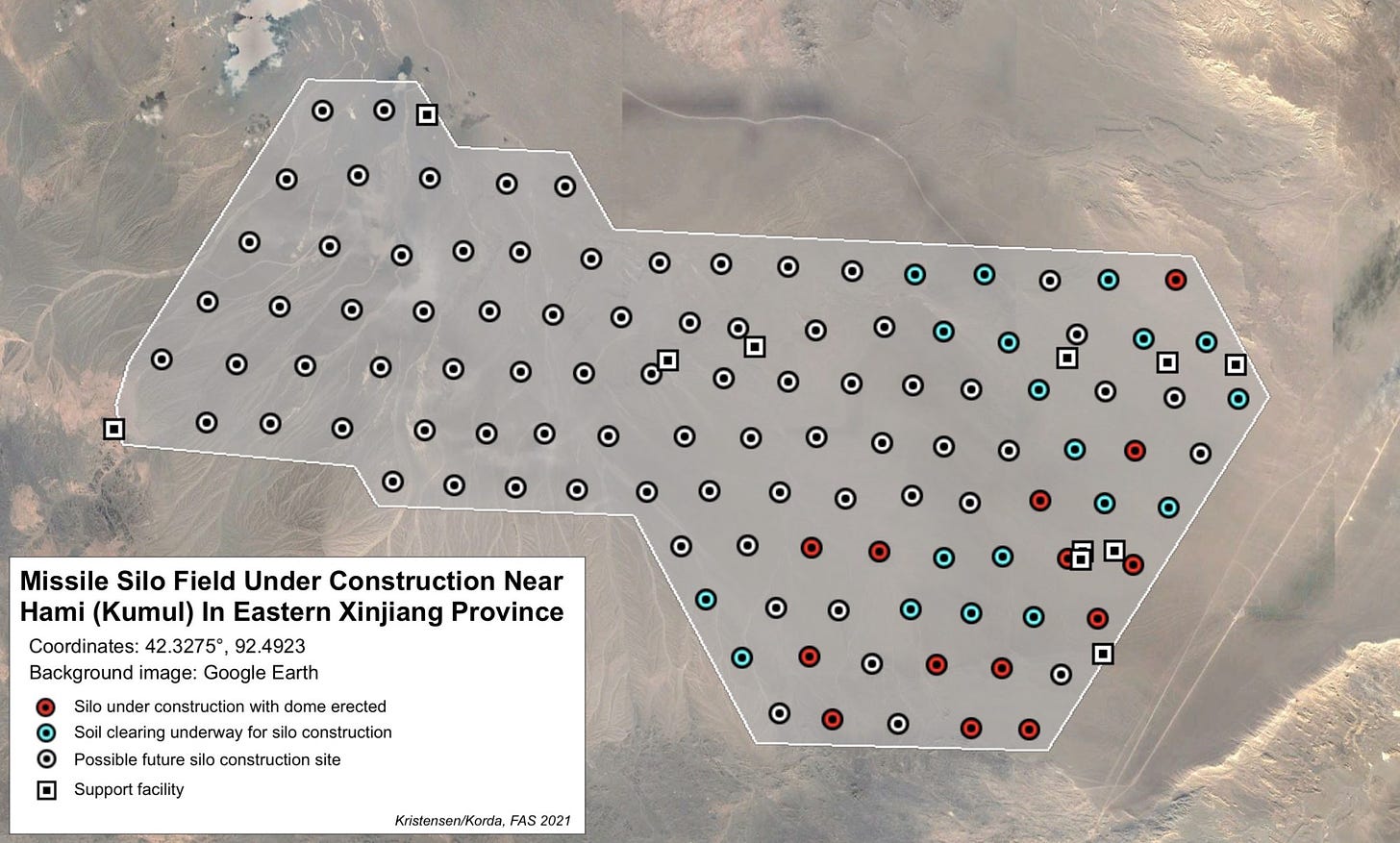
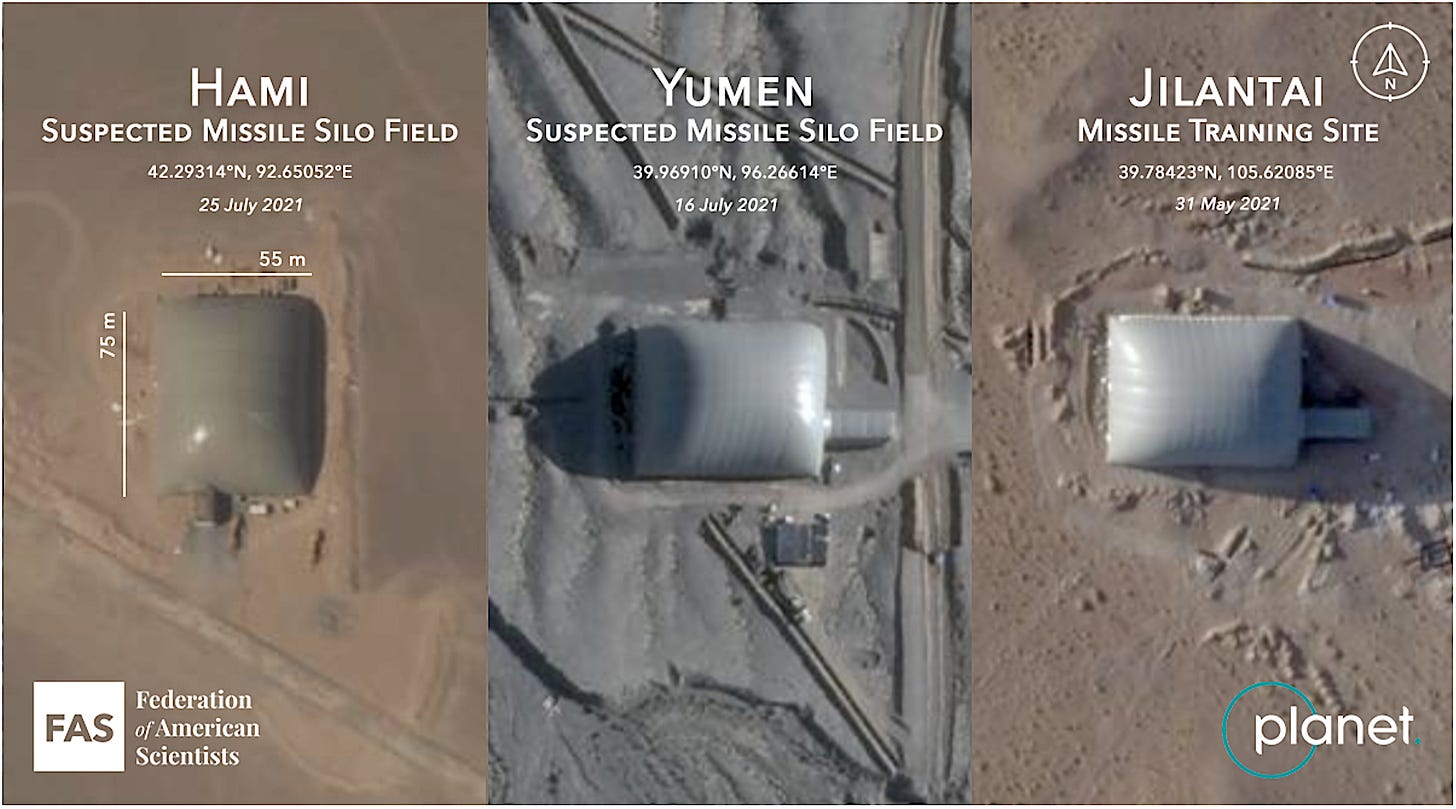
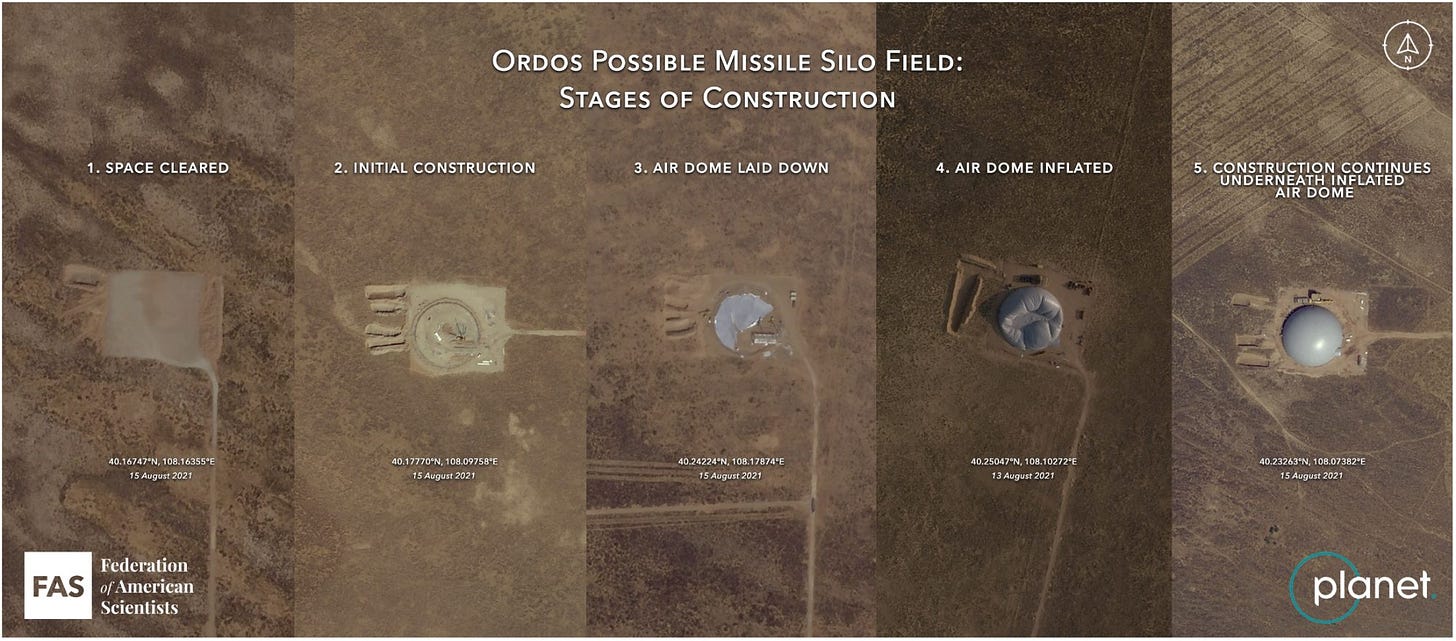





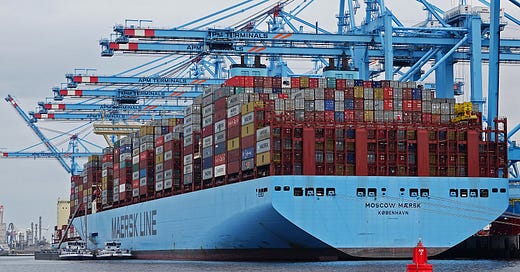

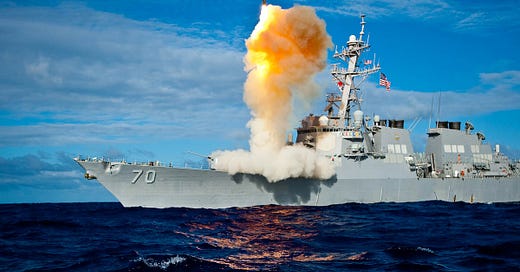



Thank you for your candid observations and interpretations. Ever since 2017, I've become more and more suspect of info from "anonymous sources" being touted as indisputable "truths" by the government and the legacy media. You pointing out that liquid fuel is almost never stored in missiles prior to an actual launch is more proof that my skepticism of "anonymous sources" is warranted.
FYI A Chinese perspective: Or Lost in Translation …
“Anti-Corruption” efforts in China are not limited to the western definition of “Corruption” (theft, bribery, etc.) it encompasses incompetence, mismanagement, laziness, etc. A general failure to achieve goals or act in comportment as expected of one’s responsibility.
In Chinese, a common phrase, is to say “His head was filled with water” (it sounds better in Chinese…) it means he was being stupid, silly or simply made the wrong decisions. This is similar to a common Western management phrase of “Showed lack of Judgement, lost faith in his judgement, questioned his judgement…” etc. as a catch all to explain a senior executive firing.
To a Chinese person, this sounds awfully like someone overheard the Chinese phrase “was filled with water” in regards to the recent Rocket Forces demotions, and is confused / conflating the translation.
There is a lot of amusement in Chinese social media regarding this latest western hysteria over Chinese rockets “Filled with Water” because of “Corruption” BTW… While we are not sure what led to the Management Shakeup (aka anti-corruption efforts), we’re glad that even the highest officials for the most critical projects “have their feet held to the fire”. (Yes the Chinese translation of this English term is quite horrific sounding.)
Best…